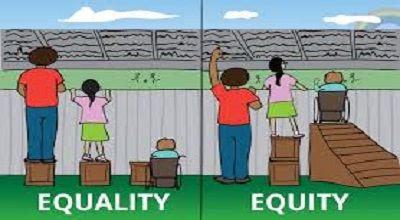Equity in the philosophy of education
Equity in the philosophy of education refers to the idea that all students should have an equal opportunity to succeed in school, regardless of their background or circumstances. This means that schools should provide all students with the resources they need to learn and achieve, and they should not discriminate against students based on their race, gender, socioeconomic status, or other factors.
Equity in education is important for several reasons. First, it is a matter of social justice. All students deserve to have the opportunity to succeed in school, regardless of their background. Second, equity in education is essential for a democratic society. For a democracy to function properly, all citizens need to be able to participate fully in society, and this requires that they have a quality education. Third, equity in education is important for economic prosperity. A well-educated workforce is essential for a strong economy, and equity in education helps to ensure that all workers have the skills they need to succeed.
There are several ways to promote equity in education. Some of the most important include:
- Providing all students with access to high-quality early childhood education.
- Ensuring that all students have access to quality K-12 education, regardless of their race, gender, socioeconomic status, or other factors.
- Providing financial assistance to students from low-income families.
- Addressing the needs of students with disabilities.
- Creating a positive and supportive school climate.
Key aspects of equity in the philosophy of education include:
- Access to Education: Equity emphasizes that all individuals should have equal access to quality education, regardless of their socioeconomic status, race, gender, ethnicity, or any other characteristic. This involves removing barriers that may hinder certain groups from entering or succeeding in educational institutions.
- Fair Distribution of Resources: Equity requires the fair distribution of educational resources, such as funding, qualified teachers, facilities, and educational materials. Ensuring that every student has access to these resources helps level the playing field and reduce disparities between different groups.
- Inclusive Practices: Equity promotes inclusive educational practices that accommodate and value the diversity of students. This includes recognizing and addressing the unique needs of students with disabilities, English language learners, and other marginalized groups.
- Cultural Sensitivity: Equity in education recognizes and respects cultural differences. It involves developing curricula and teaching methods that reflect the diversity of students’ backgrounds and experiences, fostering an inclusive and culturally sensitive learning environment.
- Affirmative Action: In some cases, equity may involve affirmative action policies designed to address historical and systemic inequalities. These policies aim to increase representation and opportunities for underrepresented groups in education.
Summary
The concept of equity is often contrasted with equality. While equality implies treating everyone the same, equity recognizes that different individuals may require different levels of support to achieve the same outcomes. Thus, equity focuses on achieving fairness by addressing individual needs and creating conditions that promote equal opportunities for success in education.
